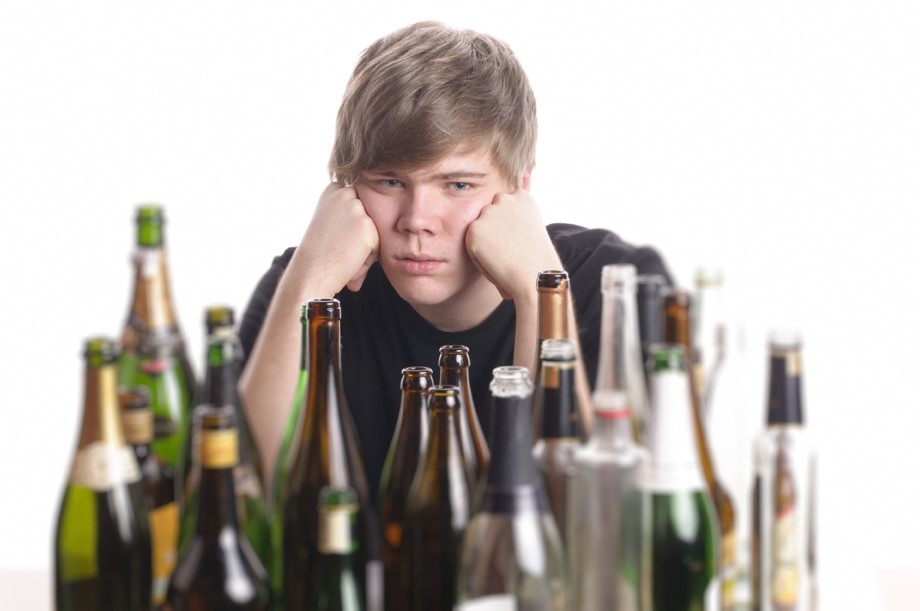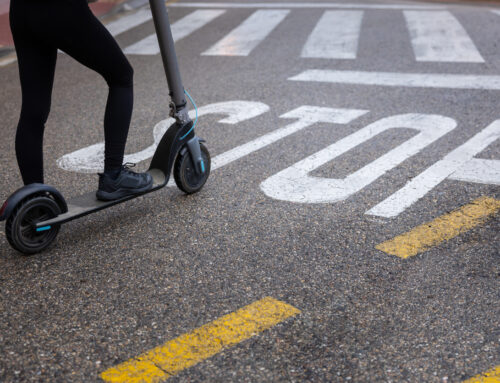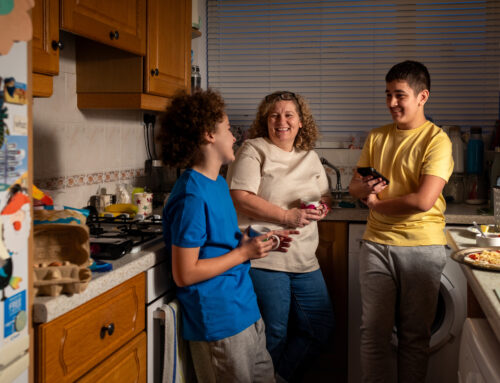Teen Binge Drinking: A Parent’s Guide to Prevention and Intervention

The teenage years are an important time of self-discovery for kids. They’re growing up faster than parents might like and they’re figuring out who they want to be as adults. Teens also think they have all the answers. So, when a kid hits a speed bump on the road of life, it can be tough for parents to watch.
You try to talk to them, but often your efforts are met with statements like, “I’m fine,” or “It’s nothing.” Sometimes it really is nothing, and sometimes it’s not. How do you know the difference? And how do you know when to step in, especially when you think alcohol is involved or, even worse, if they’re binge drinking?
What is Binge Drinking?
Binge drinking is defined as four or more drinks for females and five or more drinks for males in a short period of time. In 2018, A national study found that 12 percent of young people ages 12 to 20 reported binge drinking in the last month. If you think your child has a problem with alcohol, here are some signs to look for.
Signs of Underage Drinking
If your parental sixth sense is telling you something is wrong, don’t ignore it. Your child may be struggling with alcohol, or it may be something else. Either way, they need your help. Signs that your teen may be binge drinking include:
- Staying out late and missing curfew
- Smelling of alcohol or slurred speech
- Missing or watered-down alcohol in your home
- Change in mood or becoming secretive
- Changing friend groups
- Experiencing depression or anxiety
- Falling grades
If you notice a change in your child’s behavior, you need to investigate and get to the root of the problem. Early intervention can help your teen before something more serious happens, like they decide to get behind the wheel of a car after drinking.
Common Reasons Why Teens Binge Drink
Studies show teens are more likely to binge drink because the pleasure center of the teenage brain develops quicker than the part of their brain that controls decision-making. Physically, they don’t react to alcohol the way adults do. Drinking makes teens feel good, and their brains are not considering the consequences.
Peer pressure is another reason why teens drink. They’re trying to fit in, and they (mistakenly) think alcohol is the answer. Teenage peer pressure is not a new concept to you, but it probably is new to your child. Try not to minimize their feelings. Acknowledging what they’re going through is an important first step to get them to talk to you if they’re having a problem.
Other reasons kids choose to drink alcohol: they want to feel mature, they mimic their favorite celebrities on social media, they’re restless and bored, or they just think it’s no big deal. This is where kids are wrong, and parents need to step in, because the consequences of underage drinking, and especially binge drinking, could be deadly.
Consequences of Teenage Binge Drinking
As we mentioned above, adolescence is a critical time for teenage brain development. The human brain is not fully developed until about age 25. During that time, alcohol can cause permanent changes to the brain. It can lead to problems with cognitive functioning, planning, and memory. Underage alcohol use also can lead to increased impulsivity, sexual promiscuity, depression, and anxiety.
Underage drinkers also put themselves at risk for a lifelong dependence on alcohol. Studies show that teens who start drinking before they turn 15 have a 40 percent chance of becoming an alcoholic as adults.
Start the Conversation

Don’t give up on your kids. Creating an open dialogue can remove some of the risks, and make them more likely to talk to you if they need help with any problems, including underage drinking. Come from a place of concern. Don’t make your talks one-sided lectures. Try asking open-ended questions and really listen.
And every conversation doesn’t have to be about alcohol. Do you know what music they like, what video games they’re interested in, or how they’re doing in biology? When kids feel like you’re listening and are interested in what’s going on in all parts of their lives, they’re more likely to talk to you about alcohol.
Teens know it’s illegal for them to drink under the age of 21. They know parents would not approve of drinking parties. While they’re desperately trying to grow up quickly, they still want you to be proud of them. Meet them halfway by really listening to what they have to say.
That doesn’t mean you’re okay with underage drinking. Parents should be clear about the rules and consequences of underage drinking and stick to them.
Model appropriate behavior. If you need a drink every night after work to relieve the stress of the day, you may be teaching your teen that alcohol is the answer if they feel stressed. Drink responsibly and don’t engage in binge drinking yourself.
Helping Teens Make Good Choices
Parents can give kids the tools to make it easier for them to follow the rules. Talk to them openly and honestly about situations they may find themselves in, such as feeling pressured to drink at a party.
Try role-playing how to say “no” to friends if they feel pushed to drink. This will give them a chance to think about what they would say or do. Try creating a script. They can say, “No thanks, I’m driving” or let them blame you. They can say, “My mom is really strict. She waits up for me and checks my breath.” Kids want to make the right decisions. Help them.
Also, make sure your child knows their safety comes first. If they do make a mistake, let them know that you’re still on their side. Make it clear that you would rather have them call you for a ride home from a party because they’ve been drinking, rather than have them drive drunk or get in a car with someone else who’s been drinking.
Another way for families to work together is to Take the Pledge to stop underage drinking. The pledge is a family promise to have regular conversations about the dangers of underage drinking.
If you think your child needs professional intervention, there are many resources available to help your family. The Substance Abuse and Mental Health Services Administration (SAMHSA) has a national 24-hour helpline. They can provide information and treatment referrals: 1-800-662-HELP (4357).



